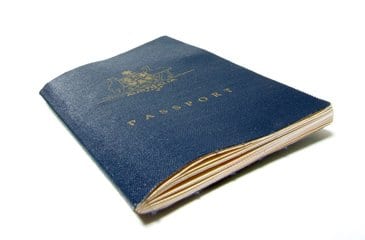As Featured In

We are here for you when it matters most.
Email Today:
Call Today:
Sydney (02) 9098 6999
Citizenship Application Refused
Many Australian citizenship applications are refused each year. The most common reasons for citizenship application refusals are:
If you have received notification of a citizenship application refusal, you may appeal the refusal decision through the Administrative Appeals Tribunal (AAT) or the Courts.
Tribunal (AAT) Review
The Tribunal has strict time limitations and if you do not lodge a review application with the Tribunal in time, it will be what’s known as an invalid application and if it’s an invalid application, you will have no review rights at the Tribunal.
One of the benefits of having your matter reviewed at the Tribunal is that the Tribunal is not a part of the Department of Home Affairs who made the refusal decision.
The Tribunal hearing is what’s known as a Merits Review and a Merits Review is basically a second chance. At a Merits Review, all the information will be considered including any evidence that we are able to compile for you up to and including the date of the Tribunal review hearing.
What Visa & Citizenship Lawyers will do for you if you want to appeal to the Tribunal
Visa & Citizenship Lawyers will:
Appeal to the Courts
The Courts that may be appealed to for immigration matters are:
Appealing a refusal decision to the Courts is only available in certain circumstances which include appealing a decision by the Administrative Appeals Tribunal (AAT) to uphold the Department of Home Affairs refusal or decision.
The difference between a Tribunal Hearing and a Court Hearing
A Tribunal Hearing is what’s known as a Merits Review. At a Merits Review, all information is heard again along with any new evidence. A Merits Review hearing is essentially a re-hearing.
A Court hearing is what’s known as a Judicial Review. Judicial review is not the re-hearing of the merits of a particular case. Rather, it is where a court reviews a decision to make sure that the decision-maker used the correct legal reasoning or followed the correct legal procedures.
On Judicial Review, if a court finds that a decision has been made unlawfully, the powers of the court will generally be confined to setting the decision aside and remitting the matter to the decision-maker for reconsideration according to law. There will be circumstances in which although a decision is not the correct or preferable decision on the facts, it will not be open to Judicial Review.
What Visa & Citizenship Lawyers will do for you if you want to appeal to the Court.
Visa & Citizenship Lawyers will:
We worked with Adam and the expert Visa & Citizenship Lawyers team. We had a tight timeline to get our work
Read More
Trusted hands. Kept us well informed throughout the process of securing Australian citizenship for our child born overseas.
We sincerely appreciate Visa and Citizenship lawyers team. They professionally help us to get our
Read More
* Indicates required field
Address:
24 Buckingham Street
Surry Hills NSW 2010
Phone:
International:
Email:
The information provided in these pages is general in nature and should not be relied upon in place of legal advice based on your own circumstances. Liability Limited by a scheme approved under Professional Standards Legislation. Privacy Policy.